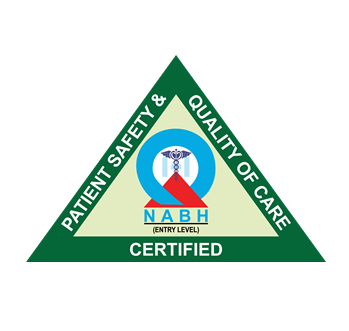
What Happens If You Don’t Treat a Hernia?
When an internal organ or tissue pushes through a weak spot in the abdominal wall, it creates an abnormal passage. This is called a hernia. The bowel and the omentum (a fatty layer that covers the intestines) are two organs that are often affected. Hernias can happen anywhere from the diaphragm to the groin and usually show up as a noticeable lump. If not treated, the displaced organ can become stuck, which is called an incarcerated hernia. This can lead to serious problems that could kill you, like bowel obstruction or strangulation, which would require emergency surgery.
At East Point Hospital in Bangalore, we are experts in diagnosing and treating hernias to prevent serious complications. The signs and symptoms of a hernia, what causes it, and the best ways to treat it.
Who Is at Risk for Developing a Hernia?
Hernias can occur in anyone, but men are more likely to develop them than women. In children, hernias are often congenital (present from birth) due to delayed closure of natural openings in the abdominal wall, especially in premature babies. In adults, hernias occur later in life due to factors that elevate abdominal pressure, including:
- Long-term coughing (from lung disease, bronchitis, or COPD)
- Lifting heavy things or doing hard physical work
- Long-term constipation
- Prostate enlargement (making it hard to urinate)
- Being overweight
- Being pregnant
- Fluid buildup in the abdomen, like what happens with liver disease
There are different types of hernias based on where they are:
Inguinal hernia: This type of hernia occurs in the groin and is more common in men. In serious cases, it can go into the scrotum (Scrotal Hernia).
- Umbilical hernia: This type of hernia happens near the belly button and is common in It usually goes away as the abdominal muscles get stronger.
- Incisional Hernia: This type of hernia happens at a scar from a previous surgery, where the abdominal wall has become weak.
- Ventral Hernia: This happens on its own in weak spots in the abdominal wall, like a Spigelian or Epigastric hernia.
- Femoral hernias: This is less common and mostly happen in They are below the inguinal ligament.
- Obturator Hernia: This is uncommon but dangerous, and it can often cause bowel Older, thinner women are more likely to get it.
- Diaphragmatic Hernia: This occurs when an abnormal opening in the diaphragm allows abdominal organs to move into the chest. It can be congenital or the result of trauma.
Signs and Symptoms of a Hernia
- A lump that is easy to see (may go away when you lie down)
- Pain or discomfort in the affected area
- The sensation of weight or pressure
- Pain that gets worse when you cough, lift, or strain
Emergency signs (call for help right away):
- Pain that is very bad and doesn’t go away
- Can’t push the hernia back in
- Signs of a bowel obstruction include nausea, vomiting, or not being able to pass
Symptoms of diaphragmatic hernias may include:
- Chest tightness (like acid reflux)
- Trouble breathing or swallowing
Diagnosis
Physical examination (for hernias close to the abdominal wall) Ultrasound or CT scan (for deeper hernias or cases that aren’t clear)
What Happens If You Don’t Treat a Hernia?
If you don’t treat a hernia, it can cause serious problems:
Incarceration: The hernia gets stuck, stopping blood flow.
Strangulation: The tissue that is trapped loses blood flow, which causes it to die (requiring emergency surgery).
Bowel Obstruction: When the intestines become blocked, it causes significant discomfort, induces vomiting, and makes it difficult to pass stool.
More Pain and Growth of the Hernia: The hernia may become larger over time, making surgery more challenging.
Treatment Choices at East Point Hospital in Bangalore. Surgery is the only effective way to resolve the problem permanently. We have:
- Hernia Repair Through an Open Procedure: A traditional method involves pushing the hernia back and sewing or meshing the weak spot to make it stronger. Suitable for people who can’t have general anesthesia (can be done with local or regional anesthesia).
- Repair of a hernia using a laparoscopy (keyhole): It does not hurt much because it only uses minor cuts. Using this procedure, it will heal faster with less pain and a quicker return to everyday life. Most patients prefer this unless there are reasons not to.
The need for treatment depends on the type of hernia and the symptoms. If you wait too long to have
surgery, you could get complications like strangulation, which requires emergency care. Taking care of risk factors, like being overweight or having a chronic cough, is also very important for long-term success.
Frequently Asked Questions
1. Is it possible for a hernia to heal on its own?
No, hernias do not go away on their own. The only permanent cure is surgery.
2. What signs should I look for to see if my hernia is serious?
If you have severe pain, vomiting, or a hard, non-reducible lump, you should go to the emergency room right away. These are signs that you may be strangling.
3. Is it safe to have hernia surgery?
Yes, modern methods (open or laparoscopic) are very effective with minimal risks.
If you suspect you may have a hernia, consult our experts at East Point Hospital in Bangalore for guidance and treatment. Intervention early on stops problems from happening!

